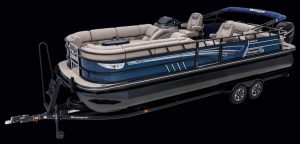A Guide to Buying Boats for a Smooth Sailing Adventure
Looking for the ideal boat can feel like an arduous adventure. To begin your boating journey, a boat must be suitable for your requirements in terms of the quantity and quality of its lodgings, speed, maneuverability, overall look, and affordability based on your budget.
Assuming that the person has located a boat that fits all the requirements, the laborious process of doing due diligence can get underway. And if a person carefully forethought the boat they considered purchasing, they won’t find themselves thinking in the future, “I wish I had thoroughly examined the boat before buying it,” since they did their research correctly. In light of this objective, let us look at several aspects you must consider when purchasing a boat. (source)
Figure Out The Expected Costs
It is the first step to which we can start our sailing adventure: figuring out your budget. A budget is more than the affordability of your boat but also the amount you can willingly provide to maintain your vessel. Owning a watercraft entails a lot of responsibilities, one of which is the expenses for your boat’s maintenance. Specifically, a person must ensure they can spend on the boat’s fuel, docking and marina fees, maintenance, insurance, boat gears, and boat accessories before buying a boat. (source)
Core Materials Are The Core Of Every Boat
In buying boats, the core materials in which the entirety of the watercraft is made up is an essential technicality that one should thoroughly examine before purchasing. One can construct from an extensive range of materials, each containing its unique strengths and stiffness properties. Since cores are an essential component of the boat’s structure, the watercraft buyer needs to consider these characteristics to ensure that the hull and deck laminates can withstand any stresses for a long time. (source)
Time Allotted For Boating
Investing in a boat is costly, particularly if the buyer usually has no intention of using the boat. It is indeed possible that a buyer might not use the boat as much as he wants because of obligations related to their family or employment. If this is the case, it is probably preferable to postpone acquiring a boat for the time being. Regardless of whether or not it is utilized, the buyer will still be responsible for costs such as depreciation, storage, and insurance premiums. So, one should rent or borrow a boat if a person wants to test his interest in boating. (source)
Brand New Or Used? Consider Your Preferences!
Like many other products, a new boat will have a warranty. Buying something to have it fail in a relatively short amount of time is one of the most disheartening things. To ensure the quality of a product, the buyer must thoroughly examine the boat’s model, engine, and features. Buying a brand-new boat that comes with a warranty provides a sense of security. If something goes wrong, you can make the repairs with a minimal to non-existent contribution from you in terms of financial resources. The time will fly, and before you know it, you’ll spend it on the ocean with your loved ones. Even though a used boat may not have a warranty, it is still possible to have fun with it and save money. (source)
What Happens After Purchasing?
After the purchase, there will be a few surprises and complex tasks associated with every boat. A person may have overlooked such technicalities and would have realized their mistake after purchasing. A buyer may reduce the number of unknowns and be more prepared for what the boat will require if the buyer gives it some careful thought ahead of time and do an effective survey.
After a buyer has purchased the boat, there is one more test that it must pass to be considered seaworthy. If, after letting go of the anchor and boarding the watercraft to explore the surrounding area, you can’t help but feel satisfied as you look back at the boat, you know you made the right decision.
- Crab Island by Pontoon: A Fun Watery Boating Guide Destination in 2024
- Upgrade Your Boating Experience: Adding a Third Pontoon Made Easy!
- How Long Does It Take A Canoe To Go… (Canoe Calculator Here)
- In-Depth Review of the Pelican Sentinel 100X Fishing Kayak: Pros, Cons, and Performance
- How To Put A Kayak In The Water – The Ultimate Guide For New Kayakers
- Steve Zimmermanoct, 7 Technicalities To Consider Before Buying That Boat, Expert troubleshooter Steve Zimmerman’s top seven technical tips for boat shoppers, October 22, 2020, https://www.passagemaker.com/technical/7-technicalities-to-consider-before-buying-that-boat
- Scott Stuebe, Ten things to consider when buying a boat, June 15, 2021, https://www.thesilverlining.com/westbendcares/blog/ten-things-to-consider-when-buying-a-boat
- Boat Building: Processes And Advances, https://www.theriaultmarine.com/about-boat-building#:~:text=In%20summary%2C%20core%20materials%20make,the%20greatest%20strength%20and%20stiffness
- Should You Buy A Boat? Things to Consider Before Buying, https://www.scoutboats.com/blog/buy-boat-things-consider-buying/










